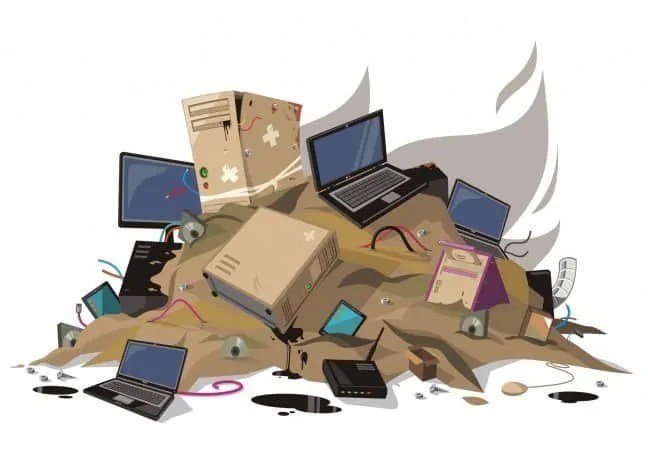In the world of technology, hardware failure can strike without warning, leaving us stranded and frustrated. But fear not, for there are often telltale signs that our faithful devices are on the brink of collapse. From strange noises to sudden crashes, decoding these signals can help us anticipate and prevent a potential disaster. Join us as we unravel the mysteries of hardware failure and learn how to protect our precious gadgets from meeting an untimely demise.

Recognizing Early Warning Signs of Hardware Failure
When it comes to your electronic devices, is crucial in order to prevent potential disasters. By being proactive and attentive to these signs, you can avoid data loss, system crashes, and costly repairs.
One telltale sign of hardware failure is strange noises coming from your device. If you start hearing unusual clicking, grinding, or whirring sounds, it could be a sign of a failing hard drive or fan. Another red flag to watch out for is frequent crashes or freezes. If your device frequently freezes or crashes unexpectedly, it could indicate a hardware issue.
Pay attention to any sudden slowdowns or performance issues with your device. If you notice that your device is running slower than usual, taking longer to boot up, or struggling to run multiple programs at once, it may be a sign of impending hardware failure. Finally, keep an eye out for any unusual error messages or warnings that pop up on your screen. These messages could provide valuable clues about the underlying hardware issue.
Understanding the Impact of Overheating on Hardware Performance
When it comes to hardware failure, overheating is one of the most common culprits that can significantly impact performance. It’s important to understand the signs and symptoms of overheating to prevent irreversible damage to your hardware.
One telltale sign of overheating is unusual noise coming from your computer or device. If you hear loud fans working overtime or strange clicking sounds, it could be a sign that your hardware is struggling to cool down properly.
Another indicator of overheating is a sudden and unexplained shutdown or restart of your device. When hardware components reach critical temperatures, the system may shut down to prevent damage, causing disruption to your work or activities.
Additionally, if you notice decreased performance, frequent crashes, or screen freezes, it could be a result of overheating affecting the functionality of your hardware. Regularly monitoring the temperature of your device and ensuring proper ventilation can help prevent overheating and prolong the lifespan of your hardware.
Key Steps to Prevent and Address Hardware Failure
When it comes to dealing with hardware failure, being proactive is key. Here are some key steps to help prevent and address hardware failure:
- Regular Maintenance: Make sure to perform regular maintenance on your hardware to keep it in top condition. This includes cleaning out dust, updating drivers, and checking for any signs of wear and tear.
- Backup Your Data: Always make sure to back up your important data regularly. This way, if your hardware does fail, you won’t lose any critical information.
- Monitor System Health: Keep an eye on your system’s performance and health through monitoring tools. This can help catch any issues early on before they escalate into full-blown hardware failure.
- Invest in Quality Hardware: Investing in quality hardware may cost more upfront, but it can save you money in the long run by reducing the chances of hardware failure.
Maximizing the Lifespan of Your Hardware Components
Keeping your hardware components in top condition is crucial for the smooth operation of your devices. By being vigilant and understanding the signs of potential hardware failure, you can maximize the lifespan of your equipment and avoid costly repairs or replacements. Here are some key indicators to look out for:
- Strange noises: Unusual sounds such as clicking, grinding, or whirring coming from your hardware could indicate a failing component.
- Overheating: Excessive heat can lead to hardware failure. If your device feels unusually hot to the touch or shuts down unexpectedly, it may be a sign of overheating.
- Slow performance: A sudden decrease in speed or responsiveness could be a sign of hardware issues, such as a failing hard drive or insufficient RAM.
By recognizing these warning signs early on, you can take proactive steps to address the issue before it escalates into a complete hardware failure. Regular maintenance, proper ventilation, and timely upgrades can all contribute to extending the lifespan of your hardware components.
In conclusion, recognizing the telltale signs of hardware failure is essential for preserving the functionality and longevity of your devices. By staying vigilant and taking prompt action when these indicators appear, you can potentially avoid costly repairs or data loss. Remember to regularly back up your important files, keep your devices clean and well-maintained, and seek professional help when needed. With a little knowledge and proactive care, you can stay one step ahead of hardware failures and keep your technology running smoothly for years to come.

